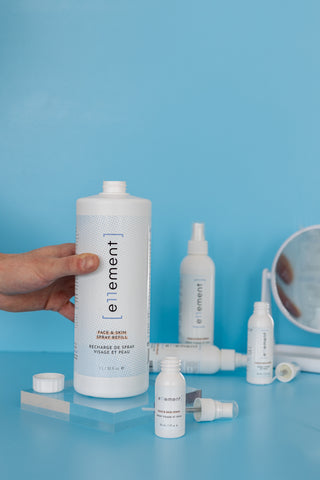As the search for safe and effective disinfectants continues, hypochlorous acid spray emerges as a frontrunner. This two-part series aims to provide an in-depth look at what hypochlorous acid spray is, its properties, and the science behind its effectiveness.
The Science Behind Hypochlorous Acid Spray
Hypochlorous acid (HOCl) is a naturally occurring molecule that plays a critical role in the immune responses of all mammals. This compound is produced by white blood cells as a first line of defense against pathogens. Synthetically, it can be created by electrolyzing a saltwater solution, which results in a stable, effective disinfectant that is rapidly gaining popularity due to its efficacy and safety profile.
Characteristics and Safety of Hypochlorous Acid
One of the most compelling features of hypochlorous acid spray is its safety. Unlike many traditional disinfectants that pose risks to humans and pets, HOCl is non-toxic and does not irritate skin or eyes. Its benign nature does not detract from its potency; hypochlorous acid is known to effectively kill bacteria, viruses, and fungi within seconds of application, making it a superior choice for a wide range of sanitization applications.

Benefits of Using Hypochlorous Acid in Everyday Life
The application of hypochlorous acid spray extends beyond just a powerful antimicrobial agent. Its uses in daily life are vast due to its non-toxic and fast-acting nature. From disinfecting household surfaces and sanitizing children's toys to being used as a skin-friendly hand sanitizer, hypochlorous acid spray offers a multitude of benefits for maintaining hygiene in a safe manner.
Environmental Impact of Hypochlorous Acid
Environmentally, hypochlorous acid is a sustainable choice. It breaks down into simple saline water after use, leaving no harmful residues. This aspect is particularly important in today's world, where environmental impact is a major concern for consumers and industries alike.
Building on our understanding of what hypochlorous acid is and its benefits,of our series focuses on the practical applications of this remarkable disinfectant across various sectors.
Hypochlorous Acid in Healthcare and Public Safety
The healthcare sector has embraced hypochlorous acid spray due to its efficacy and safety. It is used for sterilizing medical equipment, general surface sanitation, and even in advanced wound care treatments due to its ability to promote healing while preventing infections. In public safety, it’s utilized for sanitizing public transportation, schools, and other facilities to prevent the spread of illnesses.
Adoption in the Food and Beverage Industry
Hypochlorous acid is making significant inroads in the food and beverage industry. It is used to sanitize food processing equipment and surfaces without the risk of toxic residues that traditional sanitizers might leave. This ensures that the food remains safe to consume, and the work environments adhere to strict hygiene standards.
Water Treatment and Agriculture
In water treatment, hypochlorous acid spray is used to purify drinking water, effectively eliminating pathogens without forming harmful byproducts like those associated with chlorine treatments. In agriculture, farmers use HOCl to treat crops and livestock environments, reducing the prevalence of pathogens while avoiding chemical buildup, which can be harmful over time.
Making the Choice for Hypochlorous Acid
As industries and consumers alike seek safer, more effective cleaning alternatives, hypochlorous acid stands out for its robust disinfecting capabilities coupled with its safety profile. Whether it’s used in homes, hospitals, or food production, hypochlorous acid spray offers a versatile, potent solution for maintaining high standards of cleanliness and health.
These articles provide comprehensive insights into hypochlorous acid spray, emphasizing its importance, effectiveness, and versatility across different domains. The detailed analysis in each part offers readers valuable information to understand and potentially adopt hypochlorous acid spray in their professional and personal lives.























